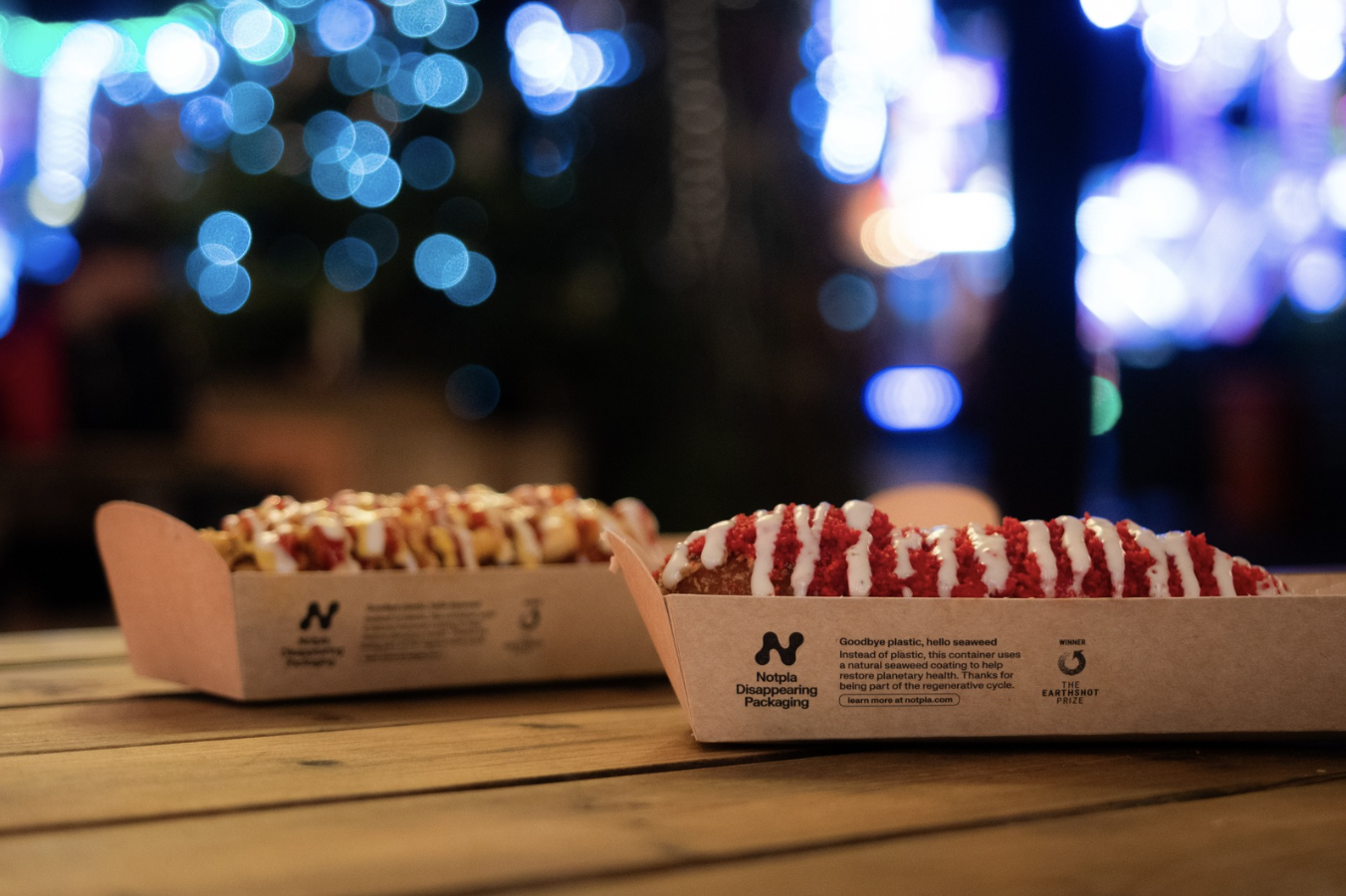
Enjoying ice cream is one of life's simple pleasures. But let's be honest, the plastic spoons that often come with it can leave a bad taste in your mouth. Well, we have some exciting news… following a number of years of intensive research and testing, we've created a revolutionary new ice cream spoon made entirely from seaweed and plants. This new spoon offers a sturdy construction, a smooth feel in the mouth and a guilt-free way to indulge in frozen treats while caring for our Earth.
Our regenerative material, Notpla Rigid, is a magical solution for disposable cutlery that eliminates plastic waste. Entirely natural, this innovative material is home-compostable and biodegradable, just like a fruit peel - no special conditions for disposal are needed. When you're done, just compost it in your backyard or food waste bin.
With over 2 billion pieces of plastic cutlery used yearly in England alone, the time for sustainable alternatives is now. As awareness grows about the damage caused by single-use plastics and legislation - notably stemming from the EU’s Single Use Plastic directive - is implemented, the demand for innovative solutions continues to rise. And we're ready for it!

At Notpla, we're pioneering the use of natural seaweed extracts to create plant-based packaging designed to replace single-use plastics. This latest edition to our range of solutions demonstrates the versatility of our patented, award-winning material - Notpla Rigid. Rigid enough for sturdy cutlery yet smooth to the mouth, Notpla Rigid works seamlessly with existing manufacturing and injection moulding systems - those typically used by the plastic industry. This makes scaling our sustainable solution easy for businesses that are ready to create a change.
Thanks to its completely natural composition, which is a natural polymer that hasn’t been chemically modified, Notpla Rigid is already exempt from the EU Single-Use Plastics Directive. We manufacture every spoon under the Good Manufacturing Practices (GMP) and label them according to Regulation EC No 1935/2004 on food-contact materials. Guaranteed safe for contact with food, our spoons just need to be sealed in an airtight container until use - just like an ice cream cone.
We recently unveiled Notpla ice cream spoons to industry leaders at the Dolce World Expo in Italy, the world's leading trade show for the dessert and coffee sector. The enthusiastic response of attendees underscores the demand as businesses seek to reduce their environmental footprint.

Want to learn more? Reach out to us anytime to discuss how Notpla and Notpla Rigid can help your business eliminate plastic waste through the power of innovative products.
%20(1).avif) From student idea to sustainable solution: Earthshot Prize-winner Notpla returns to Imperial College London
From student idea to sustainable solution: Earthshot Prize-winner Notpla returns to Imperial College London How Peppermint and Notpla redefined sustainability at Winter Wonderland
How Peppermint and Notpla redefined sustainability at Winter Wonderland.avif) Wembley Stadium partners with Notpla and Delaware North to advance sustainable packaging in live music
Wembley Stadium partners with Notpla and Delaware North to advance sustainable packaging in live music